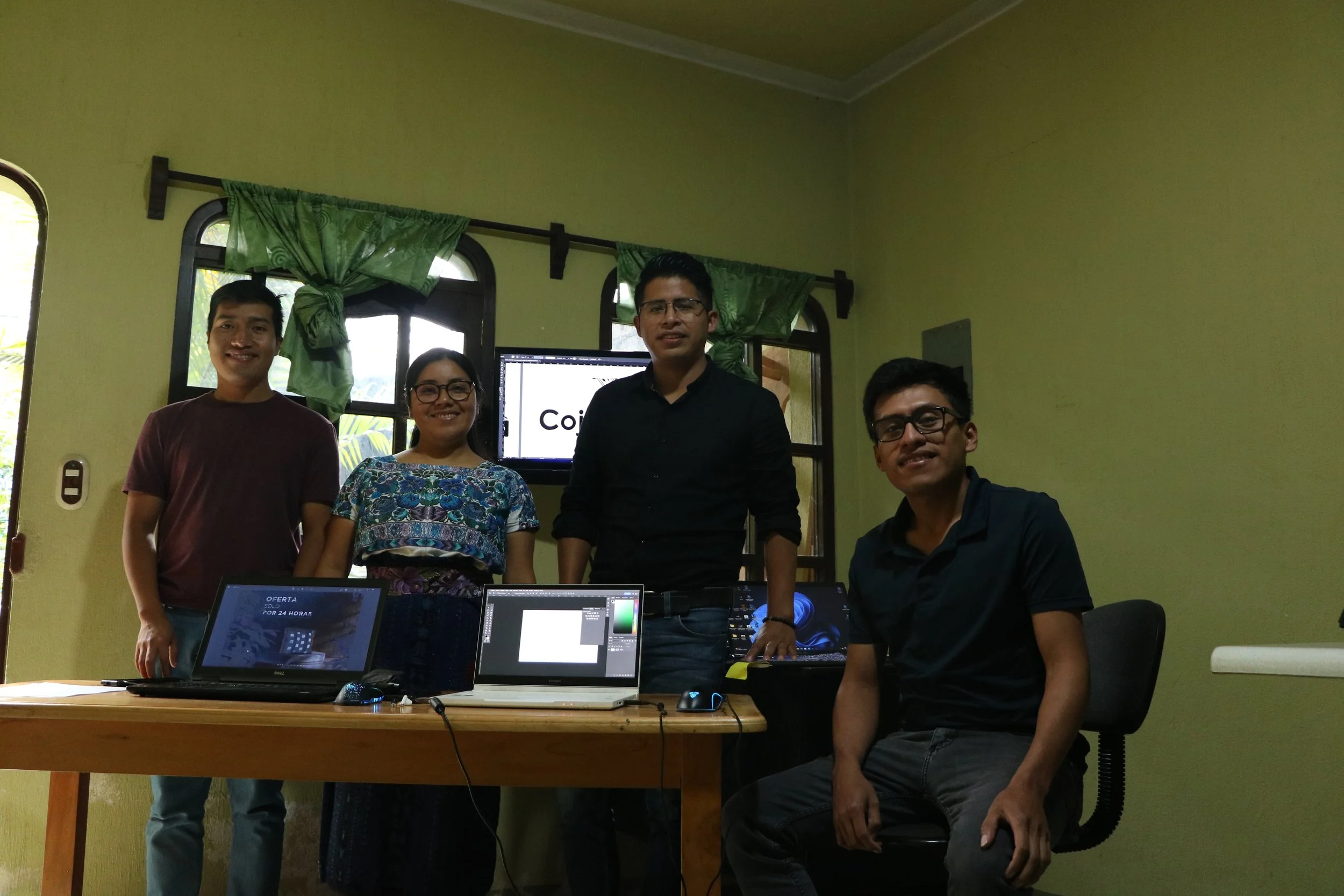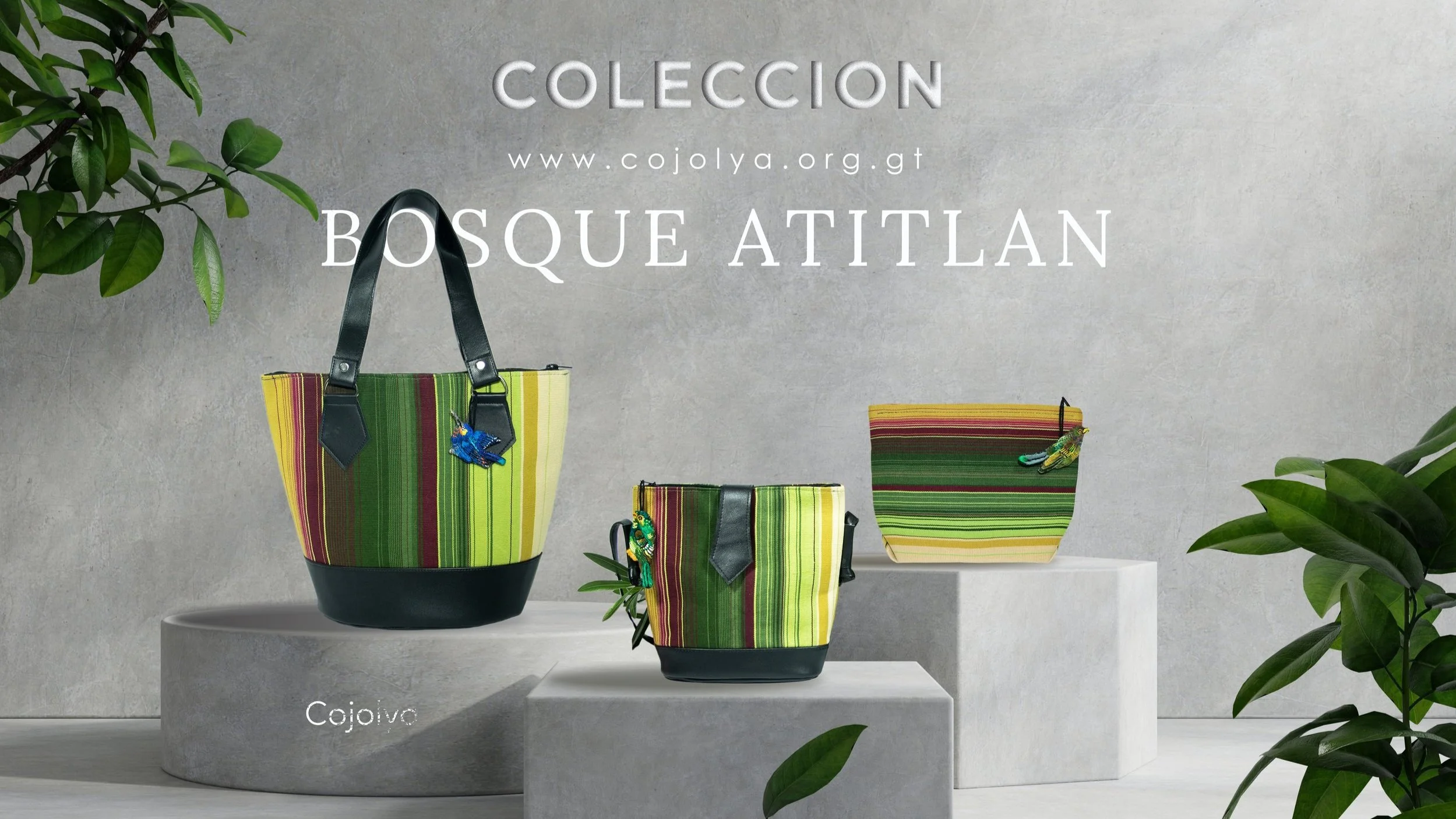Cojolya
Asocianción Cojolya (Cojolya Association of Maya Women) is a non-profit and fair-trade organization, founded in 1983 to support Maya Tz'utujil women who lost their husbands to military persecution during the Guatemalan civil war (1960-1996). Based in Santiago Atitlán, Sololá, Cojolya’s mission is to conserve the Maya tradition of backstrap weaving and “the customs and traditions that surround it” by providing artisans with access to fair pay, global markets and social development; “strengthening the productive capacity of artisans”, improving quality of life and empowering indigenous women to support themselves and their communities.
Digital Literacy and Use | Digital Transition During COVID
Pre-pandemic, face-to-face sales – through tourist sales in their Santiago Atitlán store and national trade shows - constituted a significant proportion of Cojolya’s revenue. During Covid, face-to-face sales and orders diminished, leaving the organization reliant on limited income from their online store. Social media provided a platform for artisans “to sell textile goods they would have ordinarily sold to tourists.”[1], as well as being used to promote the association’s work and raise vital funds to support artisans, their families and communities.
The pandemic highlighted the precariousness of the Cojolya’s reliance on non-Guatemalan volunteers for online marketing. The organization had, until 2020, relied upon foreign volunteers for photography, written content, website development and design to sustain their online presence. The pandemic pressured Cojolya to pivot away from this unsustainable position and to “be more focussed on digital media”. The company was compelled to further invest in their local community to enhance their digital skills and capabilities as individuals and as an organization.
Digital Literacy and Use | Artisan Experience
Family and community education and development is a fundamental pillar of the association’s Mano a Mano Para Desarrollo (Hand in Hand for Development) program. Cojolya’s Carine Coché Vásquez explains:
“[…] we have a social program that is divided into several areas and one of the main areas is the area of education. Within the education program we have the children of our artisans, who participate in the education program and who are directly supported by us so that they can continue to be educated. The support we offer […] is limited, but in one way or another they are supported within our financial capabilities, and opportunities that occur such as digital training.”
Using age and educational level as a guide, Cojolya identified young people within the community, inviting artisans to “consider [the] participation of their children” in digital skills workshops; tapping into existing digital literacy within artisan communities, to “install professional capacity in La Asocianción Cojolya” and derive the most meaningful benefit from the initiative offered through the research collaboration.
Technology and Training | Intentions + Expectations
The funding award, made in response to Cojolya’s expressed website development needs, facilitated the purchase of a new computer and the implementation of a two-stage digital skills program to train members of their operating team and young people from the artisan communities. Their aim was to equip the association members with photography, editing and graphic design skills to allow them to develop their own promotional materials for use on digital marketing platforms, and in doing so, allowing them to make use of an existing professional camera owned by Cojolya, that hitherto they "did not have the knowledge to use” or “give it the best use”.
Technology and Training | Delivery + Implementation
Five young people and two staff members were trained in product photography, photo editing and Adobe design packages. The training, which consisted of face-to-face and online workshops, was broken down into theoretical and practical sessions incorporating:
Use and handling of professional cameras.
Photographing textile products in studio and outdoor settings.
Photographing and recording textile processes and production.
An overview of key tools and applications of Adobe programmes (Photoshop, Illustrator and InDesign).
Training in image editing.
Product catalogue creation and editing.
Two Guatemala-based facilitators delivered the program – a photography professional who had grown up in the artisan community and an out-of-town editing instructor – between July and November 2022. Both had previously collaborated with Cojolya and had a proven track record of community engagement, and of providing relatable and accessible workshops.
Technology and Training | Outcomes + Impacts
“Because it was something that they had to achieve in a matter of a short time, because they had to know, they had to have photography, they had to have covers, they had to have the text (copy) […] to be able to present a good work […] and present to some extent material that can be very, very accessible to our customers. So that was the goal of having been a process of great learning."
The workshops culminated in a professional catalogue, with the young people’s work featuring on Cojolya’s website and online shop, and their social media platforms. Program participant José Ajuchán reflects upon his experience:
“It’s incredible to learn something new, and I’m impressed by how the photography environment works, each accessory, and the way you take a photo depends on the [intended] result."
Future Potential
In keeping with Cojolya’s founding principles, the training investment benefits the Maya Tz'utujil women, many of whom continue to craft their textiles on the backstrap loom, as well as benefiting members of their wider community. Training young people not only provides capacity within the community to share knowledge and support one another, it also equips them with the skills to take charge of their own narrative and have agency representing themselves, their work and their cultural heritage.
[1] Piper, A., Townsend, K. & Jabur, L. (2023). ‘Resilience, Resourcefulness and Creativity: Learning from the diversification of Guatemalan artisans during the pandemic to sustain textile traditions’. Journal of Textile Design Research and Practice. Conscious Communities Special Issue. https://doi.org/10.1080/20511787.2023.2212515.

Azul Royal Clutch promotional material

Photography workshop activity

Editing training participants

Bosque Atitlan Collection promotional material
Find out more about the work of Cojolya and their artisans:
Acknowledgments: With thanks to Cojolya’s Executive Director, Carine Coché Vásquez, for taking the time to be interviewed and for supplying images and data for use in the research.
